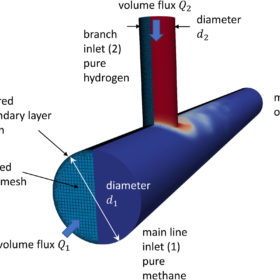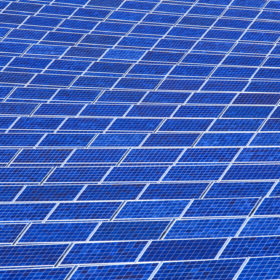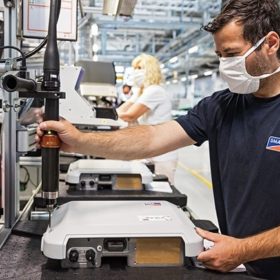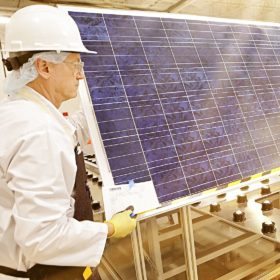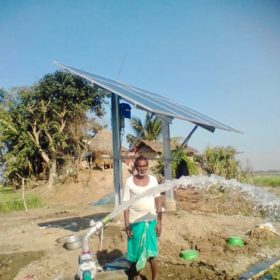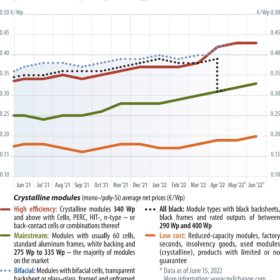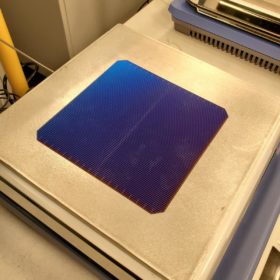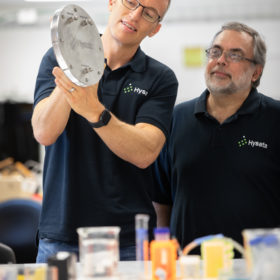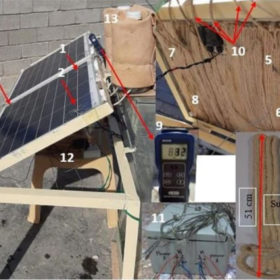Traditional hydrogen blending could damage gas pipelines, say researchers
UK researchers have revealed that gaseous hydrogen could cause problems in natural gas pipelines, while electrolyser manufacturer Nel has announced plans to build a second production line in Norway.
China’s green finance market topped $4 billion in H1
Deutsche Bank has revealed that China’s green finance market surpassed CNY 20 trillion (AU$4.07 billion) in value in the first half of 2022. Haitai Solar has listed shares in Beijing, while Shangji has revealed plans for a new polysilicon project in Inner Mongolia.
Supply chain difficulties translate into losses for SMA
SMA’s Home Solutions segment was particularly badly hit as the PV inverter manufacturer struggled to meet the demand due to the shortage of materials. The sales and results in the first half of 2022 were therefore significantly worse than in 2021. The company now wants to take “a series of measures to improve its long-term ability to deliver.”
Canadian Solar to build new Qinghai production base
Canadian Solar has announced plans to invest in a new solar production base in Qinghai province, while Boamax Technologies has revealed that it will build a new heterojunction solar cell and module factory in Anhui province.
India’s solar pump capacity hits 691.4 MW
The Indian government’s PM KUSUM Scheme supports farmers in installing standalone solar pumps and solarizing existing grid-connected agriculture pumps.
Weekend read: Chaos with no end in sight
We in the solar industry are used to our share of craziness. For us, business as usual is more the exception than the rule. We are used to coping with all sorts of imponderables – chaos as usual. Companies that have mastered this from years of training will probably be able to navigate their businesses through these troubled times. Martin Schachinger of pvXchange finds that it has been a long time since the PV market has been as crazy as it is now. Prices are rising steadily across the board, but not for solar panels.
Solar is the cheapest power, and a literal light-bulb moment showed us we can cut costs and emissions even further
New research suggests we might be able to rethink the type of silicon needed to make high-efficiency solar cells, say researchers from the CSIRO, UNSW and Oxford University.
New residential lithium-ion battery from China
Chinese manufacturer Bslbatt has unveiled an upgraded version of its residential battery. The device has a storage capacity ranging from 5.12 to 12.8 kWh and is reportedly able to provide steady operation for up to 6,000 charge cycles.
‘Game changing’ electrolysis technology from NSW closes $42m funding round oversubscribed
Australian hydrogen tech company Hysata has raised over $40 million in funding, attracting backing from major institutional players including CEFC, Hostplus and Bluescope. Hysata is seeking to commercialise a breakthrough made at the University of Wollongong which CEO Paul Barrett describes as “brand new category of electrolyser” with 95% system efficiency.
Cooling down solar modules with cotton wicks immersed in water
The novel technique consists of attaching cotton wicks immersed in the water (CWIWs) to the backside photovoltaic module. The water is supplied to cotton wicks from top to bottom by gravity which the scientists said helps the effective absorption of cotton and reduces water consumption.
